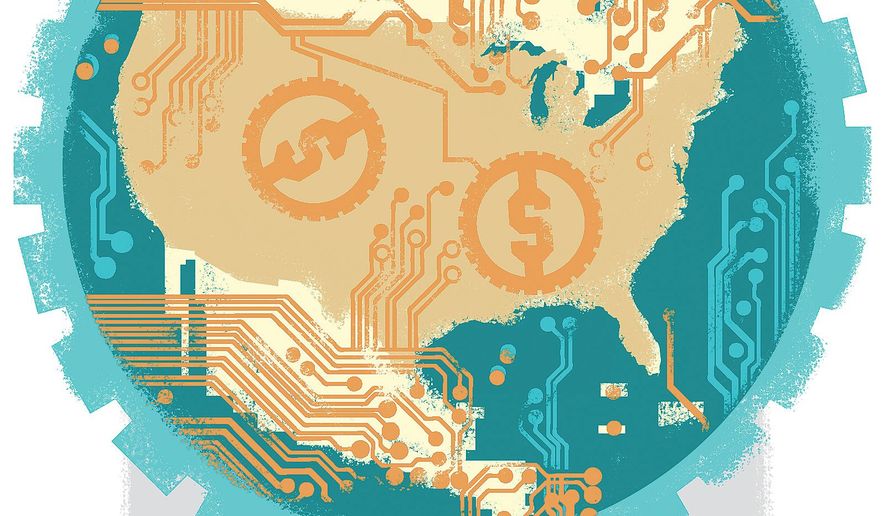OPINION:
Today up to one-third of all U.S. companies outsource work abroad to save money.
Keep in mind there are plenty of hidden expenses with offshore outsourcing, and they add up quickly. Vendor contracts can be complicated and expensive to terminate, and in addition to paying salaries overseas, U.S. businesses still need local managers on hand to supervise work process and quality control.
Operating across long distances also requires myriad accommodations, from hiring staff specifically to work off hours to funding frequent and lengthy travel abroad — all of which impact the bottom line while diverting attention and resources away from higher priorities.
Regardless of political affiliation, it is hard to argue with President Trump’s initiatives to bring jobs back to the U.S. A high priority must be placed on the jobs that offer the greatest longevity to build and sustain the U.S. economy, and those jobs do stem from the technology sector.
The focus of Mr. Trump’s efforts of bringing jobs back to America seem to center around manufacturing jobs, but instead should be on technology jobs. Corporations that include but are not limited to Apple, Bayer, Amazon and Ford Motors, have vowed to bring jobs back to the U.S. The U.S. must cooperate with these businesses to encourage the training and placement of American citizens in roles that offer strong and long-term jobs, especially those in technology. Technology jobs are the ones that are frequently outsourced.
Outsourcing tech work overseas became standard practice for U.S. businesses in the 1990s because it allowed them to grow their labor pool while dramatically slashing payroll. Two decades ago, workers in countries like India cost a fraction of what they did in the United States — about 80 percent less according to Bundeep Rangar, chief executive of the advisory firm IndusView. Today that differential has slipped to 30 to 40 percent, and it is constantly shrinking as the pay scale in India and throughout South Asia continues to rise.
Even with lower labor costs, a powerful advantage to hiring American workers is productivity. In the IT field, it takes one and a half to two offshore workers to match the output of a single U.S. worker. This is consistent with a survey of Fortune 500 CIOs, published in the CIO magazine article [cio.com] “U.S. Workers Found to Outperform Offshore Staff,” which rated Americans significantly higher on key productivity attributes, such as cultural and communication skills, taking initiative, and being innovative.
This is especially pertinent now as the advent of automated programming reduces the need to outsource repetitive process-oriented tech jobs, and there is growing demand for talent that is adept at abstract thinking and problem solving for business — areas in which American workers excel.
Another factor that favors American workers is that they stay in their jobs longer. High turnover is a chronic problem for businesses that outsource abroad, particularly in the tech field where it can take three to five months to train someone on a project. The 2017 Analytics India Employee Attrition Study puts the average annual employee turnover rate at 24.4 percent, though some sources cite even higher estimates in the 30 to 50 percent range. The knowledge drain from job-hopping is costly and disruptive, and it is little wonder that the likelihood of a project’s failure is 30 to 50 percent higher when operating offshore.
And of course, there is the paramount issue of security and protecting intellectual property. Data leaks increased 16 percent worldwide from 2015 to 2016 according to a report by InfoWatch, and it is unsettling indeed that many countries ranked low on Transparency International’s 2016 Corruption Perceptions Index [transparency.org] are top destinations for IT outsourcing.
Ironically, through the H-1B visa program, our government enables 85,000 foreign nationals to come here every year and take mainly tech jobs even though at home we are experiencing a tech skills shortage. U.S. businesses must keep — or bring back — home-based tech jobs, and establish an environment that is conducive to technological innovation and growth for decades to come.
• Harley Lippman is the founder and CEO of Genesis10.




Please read our comment policy before commenting.